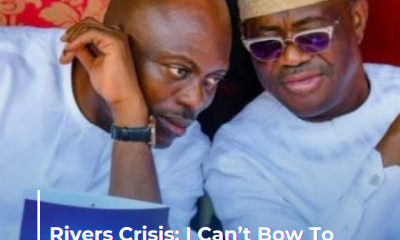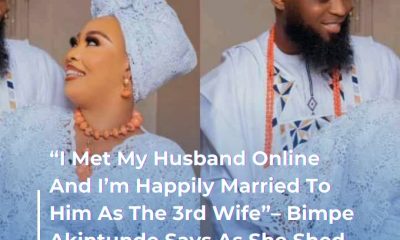News
53 broadcast stations are not shut down by Buhari or NBC due to a court order

Ibekimi Oriamaja Reports
The National Broadcasting Commission (NBC) and President Muhammadu Buhari were attempting to revoke the licenses of 53 broadcast stations across the nation and shut them down for allegedly not renewing their licenses when the Federal High Court, based in Lagos, intervened.
Iyobosa Uwugiaren, general secretary of the Nigerian Guild of Editors (NGE), and Kola Oluwadare, deputy director of the Socio-Economic Rights and Accountability Project (SERAP), signed a statement in which they claimed that Justice Akintayo Aluko (Court 8) had issued an order of interim injunction after hearing their argument on a “Motion Exparte” filed by NGE and SERAP.
The NGE and SERAP had last week filed a lawsuit against Buhari and NBC, asking the court to declare that the Third Schedule to the NBC Act’s Section 10(a), which NBC used to threaten to revoke the licenses of 53 broadcast stations and to shut them down, is unconstitutional and illegal because it infringes on the right to free speech.
The two parties had requested “an order of interim injunction restraining Buhari and NBC, their agents from revoking the licenses of 53 broadcast stations in the country and shutting down their operations, pending the hearing and determination of the motion on notice filed contemporaneously in this suit,” according to the lawsuit.
The lawsuit was also postponed until September 8, 2022, when the motion on notice for an interim injunction would be heard.
NGE and SERAP asked the court to rule on whether “section 10(a) of the Third Schedule to the NBC Act, used by NBC to threaten to revoke the licenses of 53 broadcast stations and shut them down, is not in inconsistent with freedom of expression and access to information” in the lawsuit with case number FHC/L/CS/1582/2022.
NGE and SERAP argued that rather than limiting the right to free expression, broadcasting regulations should aim to advance and broaden it.
Part of the lawsuit stated: “The freedom of expression sections of the Nigerian Constitution and human rights treaties suggest that this right may be exercised through any channel.
“These rules effectively acknowledge that every person has the right to equal access to information through any communication means without discrimination, including the ability to receive, seek, and impart information.
“The application of the NBC Act and Code in this matter would significantly restrict freedom of expression, which is an essential component of the public order guaranteed by the Nigerian constitution and human rights treaties to which Nigeria is a state party.
“The two groups had argued that the media plays a crucial role as a vehicle or instrument for the exercise of freedom of expression and information – in its individual and collective aspects – in a democratic society, adding that the media has the duty of disseminating all types of information and opinion on topics of general interest.
The general public has a right to learn about and evaluate this information and views on their own. So, for a democratic society to work properly, there must be a free, independent, active, pluralistic, and diversified media.
-

 News7 days ago
News7 days agoCooking Gas Price Has Fallen
-

 Sports6 days ago
Sports6 days agoFinidi agrees deal with NFF, names three foreign assistants
-

 News7 days ago
News7 days agoRead How Auxiliary Was Whisked Away By Masked Security Agents as Family member Speaks
-

 Politics6 days ago
Politics6 days agoAtiku Says Tinubu’s Son Is A Director In Company Related To Coastal Road Contract
-

 Politics6 days ago
Politics6 days agoRivers Crisis: I Can’t Bow To Wike, He’s Not God – Fubara
-

 News7 days ago
News7 days agoERA OF GIVING OIL BLOCS TO POLITICIANS AS PATRONAGE IS OVER SAYS LOKPOBIRI
-

 Entertainment6 days ago
Entertainment6 days ago“I Met My Husband Online And I’m Happily Married To Him As The 3rd Wife”– Bimpe Akintunde Says As She Shed More Light On Her Marriage
-

 Sports6 days ago
Sports6 days agoRaphael Onyedika Suspended For Club Brugge’s Conference League Clash With Fiorentina




